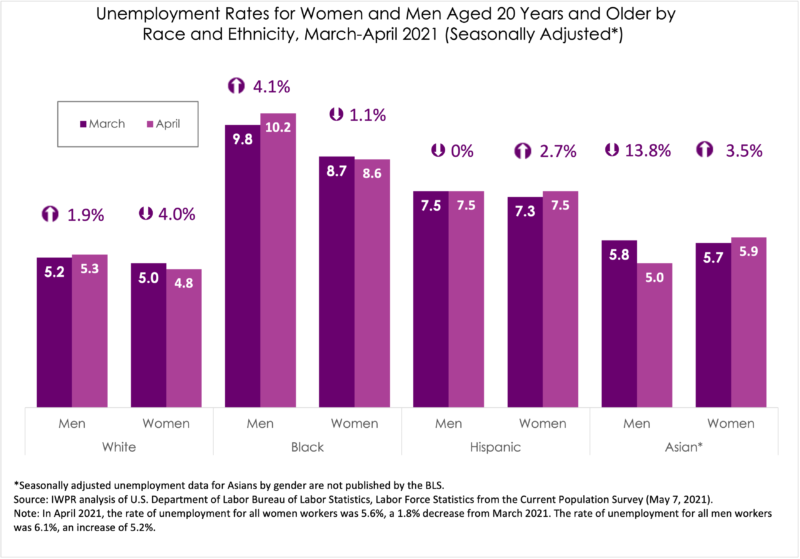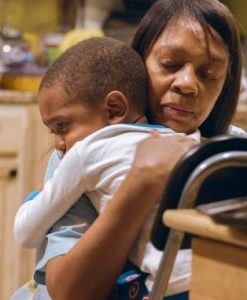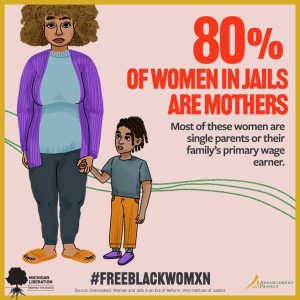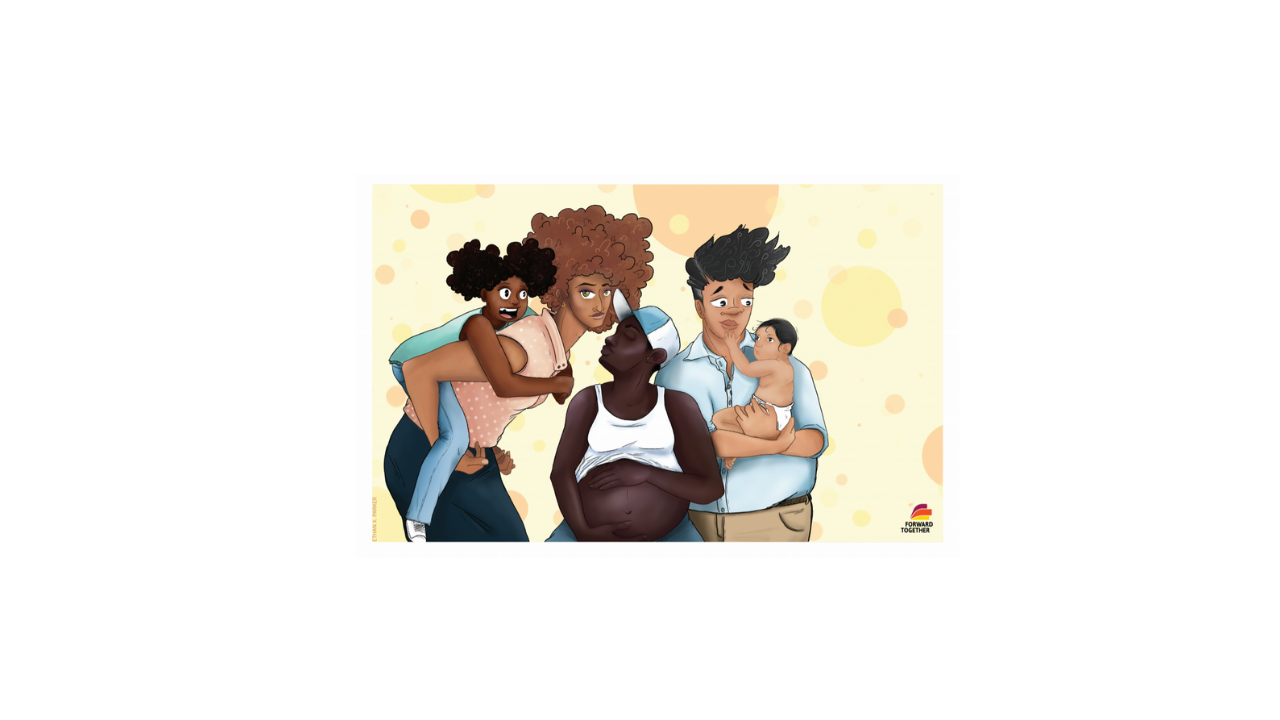Doting children in the U.S., young and old, filled their social media feeds last past weekend to celebrate everyone’s favorite parent, their mothers. Whether it was the person who birthed them or the caretaker that has guided them through life’s most important journeys, there were very few places you could go during the first week of May where these (s)heroes weren’t getting their just due.
Nevermind, of course, that various countries celebrate Mother’s Day on other days, including the 22nd (Israel) and the 30th (France, Haiti, the Dominican Republic and a host of others.)
As many media outlets have reported, a smaller number of jobs were added to the economy, with overall unemployment rising slightly. Also in the report: the number of women who held jobs fell by 83,000, with 165,000 fewer women holding or looking for work in April rather than March. Unsurprisingly, those statistics showed experiences differently along lines of race. According to the Institute for Women’s Policy Research, unemployment rates for Black, Hispanic and Asian women were 1.8, 1.6 and 1.2 times higher compared to white women.

Source: Institute for Women’s Policy Research
It’s a trend that extends beyond last month, with conditions over the last year has worsening the already difficult conditions that the gender pay wage gap and other systemic issues put on working mothers. According to the National Women’s Law Center, the unemployment rate for mothers more than double from 3.5% in 2019 to 7.5% in 2020. The figure was worse for mothers of color, with rates being 8.1% for Asian mothers, 10.3% for Black mothers and 10.4% for Latina mothers.
It’s all part of what many are calling the Women’s Recession, kicked off by job losses in many female-dominated industries. However, as the 19th recently reported, while some sectors of the economy are returning to pre-pandemic employment levels, the same can’t be said for a significant number of mothers.
“…the women’s recession has continued even as those jobs have returned because of the unequal impact on mothers, in particular, according to several studies of the recession published in the past several months.
One, published in the National Bureau of Economic Research, found that while many countries were also gripped by their own women’s recessions, few were as severe as the one in the United States. Women in the U.S. had less flexibility to work from home, less access to paid leave and fewer furlough options that would keep them employed while reducing their hours. Limited access to child care was also a key driver.”
The numbers should continue to pressure local and national lawmakers to craft solutions around affordable daycare and flexible work hours. And maybe even making Mother’s Day one of those paid Monday holiday, eh?
Maternal mortality as an urgent issue
Celebrating all of the mothers should also mean addressing all aspects of their care, including the health disparities Black women face during and after pregnancy. Studies show that while Black women more than twice as likely to die in childbirth regardless of education and socioeconomic status. Yet philanthropic funding for maternal health has not kept pace with the number of pregnancy related deaths among Black women.
Everyone clearly has a role. Advocates are increasingly turning to local and national elected officials to do something about it in their respective legislators. For philanthropy, curbing maternal mortality requires investment specifically in Black maternal health care and solutions that engage inequities undermining health outcomes for Black mothers and their babies. Dr. Joia Crear-Perry, founder and president of NCRP nonprofit member National Birth Equity Collaborative and contributor to Black Maternal Health Research Re-Envisioned: Best Practices for the Conduct of Research With For, and By Black Mamas in collaboration with other Black Women Scholars and the Research Working Group of the Black Mamas Matter Alliance, spoke with NCRP’s Senior Movement Engagement Associate Brandi Collins-Calhoun about existing trends and how grantmakers can contribute to Black birthing justice.

credit: A scene from Loira Limbal’s Through The Night (Naiti Gamez)
Remembering their stories
Are you more inclined to learn off the written page? Prospective Fund Senior Fellow Sonya Childress suggests these 3 documentaries that will provide insight – and appreciation for what modern motherhood entails:
Shantrelle P. Lewis’ In Our Mothers’ Gardens “celebrates the strength and resiliency of Black women and Black families through the complex, and often times humorous, relationship between mothers and daughters. The film pays homage to Black maternal ancestors while examining the immediate and critical importance of self-care, and the healing tools necessary for Black communities to thrive. Featured interviews include: #MeToo founder Tarana Burke; The Roots and Chris Rock tour manager Tina Farris; cultural critic Dr. Brittney Cooper of Rutgers University; Rev. Dr. Theresa S. Thames of Princeton University; holistic lifestyle maven Latham Thomas; photographer Adama Delphine Fawundu and NPR’s Senior Director for Programming Yolanda Sangweni.” (Array Pictures. Playing now on Netflix.)
Sian-Pierre Regis’ Duty Free “examines ageism, the care crisis, and economic insecurity in America” through one son’s eyes. It centers on the story of 75-year-old immigrant mother Rebecca, who after getting fired without cause from her lifelong job as a hotel housekeeper, is “taken by her filmmaker son on a bucket-list adventure to reclaim her life. As she struggles to find work, Sian documents a journey that uncovers the economic insecurity shaping not only her future, but that of an entire generation.” (Playing in theaters and virtually here.)
Fresh off its national PBS debut, Loira Limbal’s THROUGH THE NIGHT takes an intimate view of “three working mothers whose lives all intersect at a 24-hour daycare center: a mother working the overnight shift as an essential worker at a hospital; another holding down three jobs just to support her family; and a woman who for over two decades has cared for the children of parents with nowhere else to turn.” Limbal, a Sundance Institute Fellow and a former Ford Foundation JustFilms/Rockwood Fellow, provides plenty of insight into all the ways that women fight for dignified existence under a demanding system that rarely fully values all the work — paid, underpaid, and unpaid; emotional and physical; domestic and career-oriented – that they perform daily. (Now streaming on PBS through June 9.)

credit: Michigan Black Mama’s Bail Out/Advancement Project
Donations beyond Sunday
One of the many projects that deserves support past the holiday is the #FreeBlackMamas campaign. The effort, through several nonprofits and mutual-aid groups, looks to provide bail money to those mothers who otherwise can’t afford to get back to their homes. As Michigan Liberation and the Advancement Project note, 80% of women in jails are mothers, with most of them being single parents or their family’s primary wage earners.
For more information, visit the Advancement Project’s Black Mama Bailout: #FreeBlackWomxn page. Find out more about the National Bailout campaign.
One last ode to mama
While it is true that a lot could be accomplished by retiring the narrative of the selfless mom who sacrifices her own joy to serve her children and others, it is also true that many mothers are tireless champions for those that they love. So, on that note, we leave you with this poem of appreciation, penned by our very own Joelle Thieren, with photos supplied by Forward Together’s Mama Day Art project.
Cover Art credit: Ethan X Parker. Provided under Creative Commons by Forward Together. Each year, Forward Together’s Mama’s Day project looks to honor, celebrate and lift up the strength of all mothers through art. To find out more out the project and donate to their efforts, visit https://mamasday.org.
